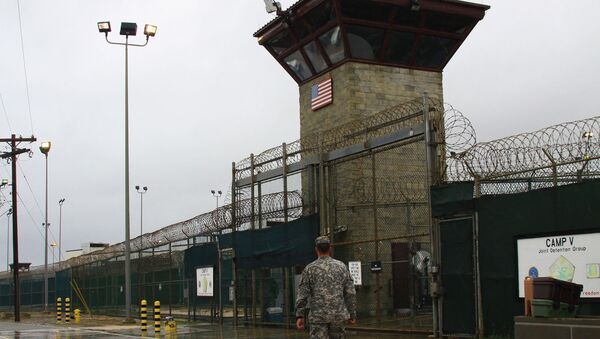WASHINGTON, October 11 (RIA Novosti) - The White House continues to call on the Congress to enable the closure of the Guantanamo Bay prison, however, denies the media reports about Barack Obama's plans to do it by an executive order, a spokesperson for the White House National Security Council told RIA Novosti.
"It remains true that we continue to object to Congressional restrictions, as we've made clear many times, including in our Statement of Administration Policy on the House-passed National Defense Authorization Act," White House National Security Council spokesperson Caitlin Hayden said.
"The Administration will also continue to call on members of both parties to work together to ensure that Congress lifts the remaining restrictions and enables the closure of the detention facility at Guantanamo Bay," she vowed.
The Wall Street Journal cited a senior administration officials as saying Thursday that the administration was drafting options that would allow Obama to close the detention facility by overriding a congressional ban on bringing prisoners to the United States.
"We do not know what new press reports are referring to when they say the Administration is "drafting options" intended to "override a congressional ban," Hayden said.
She also emphasized that the President has been clear about the Administration's strategy with respect to Guantanamo Bay.
"To the greatest extent possible and consistent with our national security interests, detainees will be repatriated or resettled, or prosecuted in Federal courts or military commission proceedings," Hayden explained, adding that the Periodic Review Board (PRB) process will review whether certain detainees designated for law of war detention continue to pose a significant threat to the security of the United States.
"The President's Special Envoys for the Departments of State and Defense will continue actively working with foreign governments to negotiate potential detainee transfers," she concluded.
Since it was established in 2002, the Guantanamo Bay detention camp has been the target of criticism by human rights activists and many international government officials, who have condemned its controversial interrogation methods and the dubious legality of holding prisoners indefinitely without charging them with crimes.

